5 tips about freestanding bathtub best quality
Introduction
Are you seeking the epitome of luxury and comfort for your bathroom?
Look no further. We promise to unveil the finest freestanding bathtub options, each boasting unparalleled quality and craftsmanship.
In this article, we'll delve into the realm of freestanding bathtubs, addressing the perplexity surrounding their quality.
We understand the confusion; after all, with numerous options available, making the right choice can be daunting. But don't worry, we've compiled a list of the most asked questions people have about freestanding bathtub best quality.And we can also introduce you to bathroom design with bathtub and freestanding bathtub production.
By exploring their unique characteristics, we aim to equip you with the knowledge needed to make an informed decision and transform your bathing experience.
So, let's embark on this journey together, unraveling the mysteries of freestanding bathtub best quality.
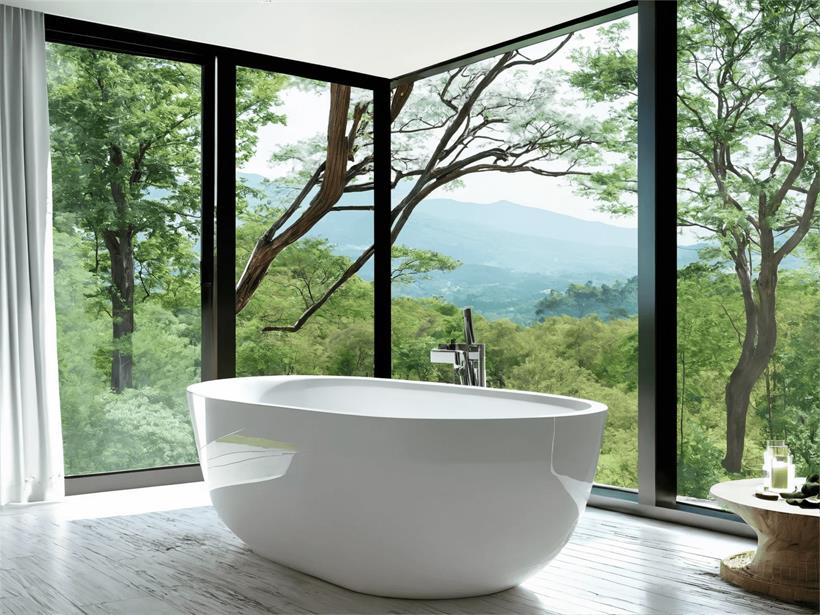
1) What type of freestanding tub is best?
Material:
High-quality freestanding tubs are crafted from various materials, each offering distinct advantages. Cast iron, acrylic, fiberglass, resin stone, or Corian are commonly used. Consider the durability, insulation, and maintenance requirements of each material.
Durability:
Cast iron and stone resin are renowned for their exceptional durability, ensuring longevity and resilience against wear and tear.
Size:
Select a tub size that fits your bathroom space adequately while providing ample room for a comfortable bathing experience.
Warranty:
Opt for a bathtub with a comprehensive warranty, safeguarding against defects and damage, ensuring peace of mind and long-term satisfaction with your investment.
Origins of Doubt:
The multitude of materials and variations in construction may lead to confusion regarding which type of freestanding tub offers the best overall quality and value.
Answer:
By analyzing the durability, size suitability, and warranty coverage of each material, individuals can confidently select the freestanding tub that aligns with their preferences and requirements, ensuring a luxurious bathing experience.
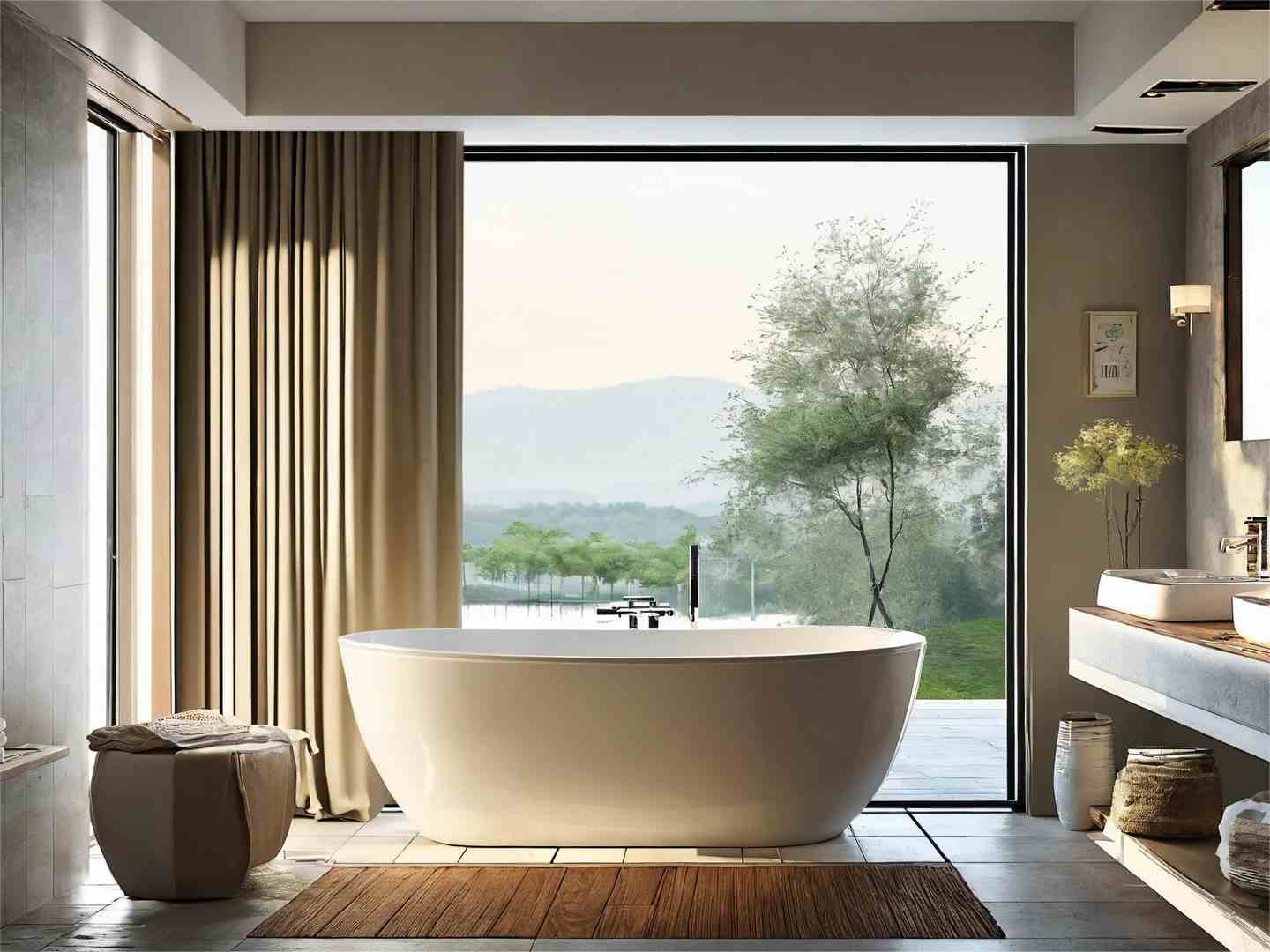
2) Which is the most comfortable freestanding bath?
Determining the "most comfortable" freestanding bathtub can indeed be subjective, hinging on individual preferences regarding size, shape, and material.
Shape:
Oval bathtubs, with their inherent lumbar angle, often provide exceptional comfort by allowing the body to rest naturally while soaking. This design feature enhances relaxation and comfort during baths.
Size and Depth:
Well-shaped and spacious bathtubs offer ample room for a comfortable soak, allowing users to stretch out and unwind. Deeper bathtubs provide enhanced immersion, enveloping the bather for a more luxurious bathing experience.
Material:
Materials such as acrylic, resin stone, and cast iron are prized for their ability to insulate effectively, retaining warmth and ensuring a cozy bathing experience.
Origins of Doubt:
The subjective nature of comfort and the wide range of factors influencing comfort levels may leave individuals unsure about which freestanding bathtub offers the highest comfort.
Answer:
By considering factors such as shape, size, depth, and material insulation, individuals can identify the freestanding bathtub that best suits their comfort preferences, enhancing their overall bathing experience.
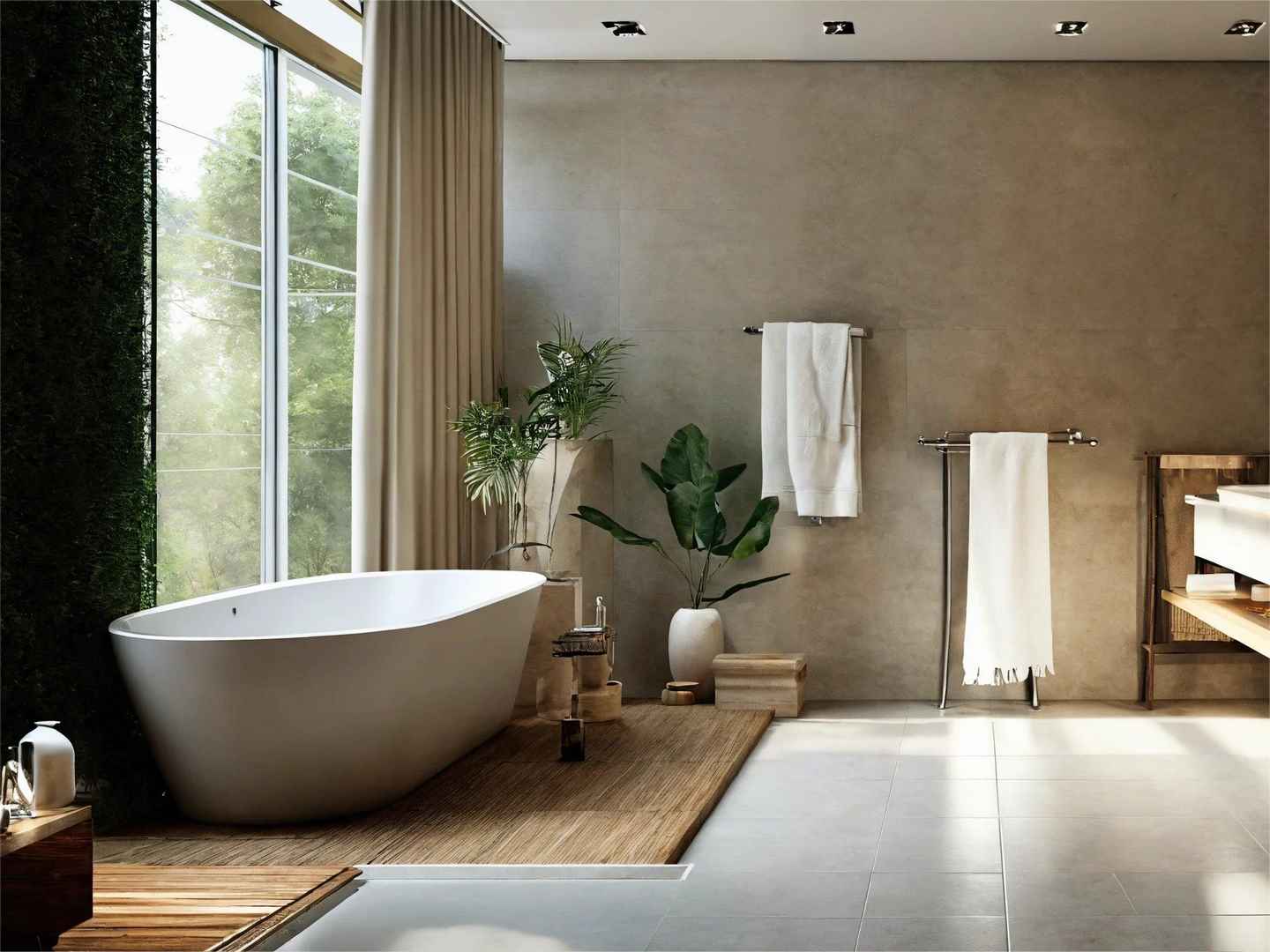
3) What is the best quality bathtub material?
Determining the best material for freestanding bathtubs is a crucial decision, albeit subjective, influenced by factors such as durability, aesthetics, and budget. Among the plethora of options, several materials stand out for their quality and performance.
Acrylic:
Acrylic emerges as a popular choice for freestanding bathtubs due to its lightweight nature, durability, and affordability.
Non-porous and stain-resistant, acrylic tubs are easy to maintain, providing a hassle-free bathing experience. Additionally, their excellent insulation properties ensure a comfortable soak.
Cast Iron:
Renowned for its timeless appeal and robustness, cast iron bathtubs epitomize durability.
Despite their weight, these tubs boast exceptional resistance to scratches and chips, promising longevity and enduring elegance. Moreover, their superior heat retention capabilities elevate the bathing experience to a luxurious level.
Fiberglass:
Ideal for budget-conscious consumers, fiberglass bathtubs offer a lightweight and cost-effective option.
While they may lack the durability of other materials, fiberglass tubs provide a budget-friendly solution without compromising too much on quality.
Resin Stone:
Combining crushed stone with resin, resinstone bathtubs deliver a blend of durability and luxury.
With sturdy construction and excellent insulation properties, these tubs ensure a comfortable and indulgent bathing experience, resistant to scratches and wear over time.
Solid Surfaces:
Crafted from blends of natural minerals and acrylic polymers, solid surface bathtubs offer a sleek and customizable option.
With a smooth, non-porous surface, these tubs resist stains and scratches, catering to both aesthetic and practical preferences.
Copper:
For those seeking a distinctive and luxurious option, copper bathtubs exude elegance and charm.
Their excellent insulation properties and unique patina development over time contribute to their allure, albeit requiring regular maintenance to preserve their appearance.
Origins of Doubt:
The abundance of bathtub materials and their varied characteristics may leave consumers uncertain about which material offers the best combination of quality, durability, and value.
Answer:
By evaluating the properties and features of each material, individuals can make an informed decision based on their priorities and preferences, ensuring the selection of a high-quality freestanding bathtub that enhances their bathing experience.
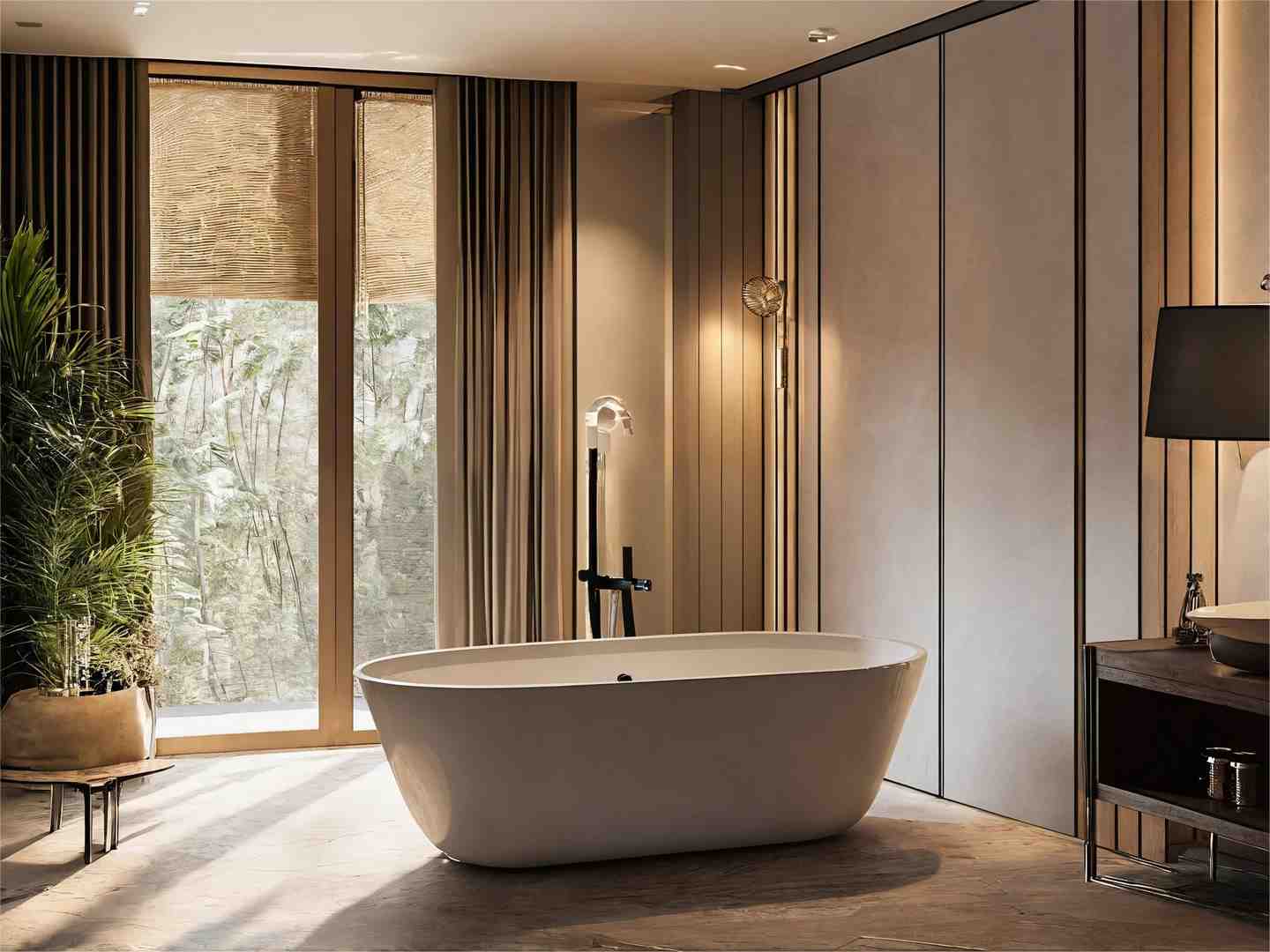
4) Which is better: acrylic or porcelain freestanding tub?
Choosing between acrylic and porcelain freestanding tubs can be a pivotal decision, influenced by factors such as durability, maintenance, cost, and aesthetics.
Acrylic Freestanding Tubs:
Durability:
Acrylic tubs typically offer commendable durability, boasting resistance to chips and scratches compared to porcelain counterparts.
However, they may be susceptible to discoloration over time without proper maintenance.
Easy to Maintain:
Maintaining acrylic bathtubs is relatively straightforward, requiring regular cleaning with mild soap and water to preserve their appearance.
Cost:
Acrylic freestanding bathtubs often present a more economical option compared to porcelain, providing a balance between affordability and durability.
Variety of Designs:
With a plethora of shapes, sizes, and styles available, acrylic bathtubs offer versatility in design, catering to diverse bathroom aesthetics and personal preferences.
Porcelain Freestanding Bathtubs:
Durability:
Porcelain bathtubs are renowned for their superior durability, boasting resistance to scratches, chips, and stains. They are less prone to fading or discoloration over time compared to acrylic counterparts.
Ease of Maintenance:
While ceramic bathtubs are generally easy to clean, they may necessitate more meticulous maintenance to prevent surface scratching or chipping.
Cost:
Porcelain freestanding bathtubs often command a higher price point than acrylics due to their enhanced durability and luxurious appearance.
Timeless Aesthetics:
With their classic and elegant appearance, porcelain bathtubs exude sophistication and can elevate the overall aesthetic of any bathroom space, adding a touch of luxury.
Origins of Doubt:
Consumers may find themselves torn between acrylic and porcelain freestanding tubs, grappling with considerations such as durability, maintenance, and cost.
Answer:
By weighing the pros and cons of acrylic and porcelain tubs in terms of durability, maintenance requirements, cost, and aesthetic appeal, individuals can make an informed decision tailored to their specific needs and preferences, ensuring the selection of a high-quality freestanding bathtub that enhances their bathing experience.
Certainly, let's proceed with the introduction of the fifth freestanding bathtub best quality.
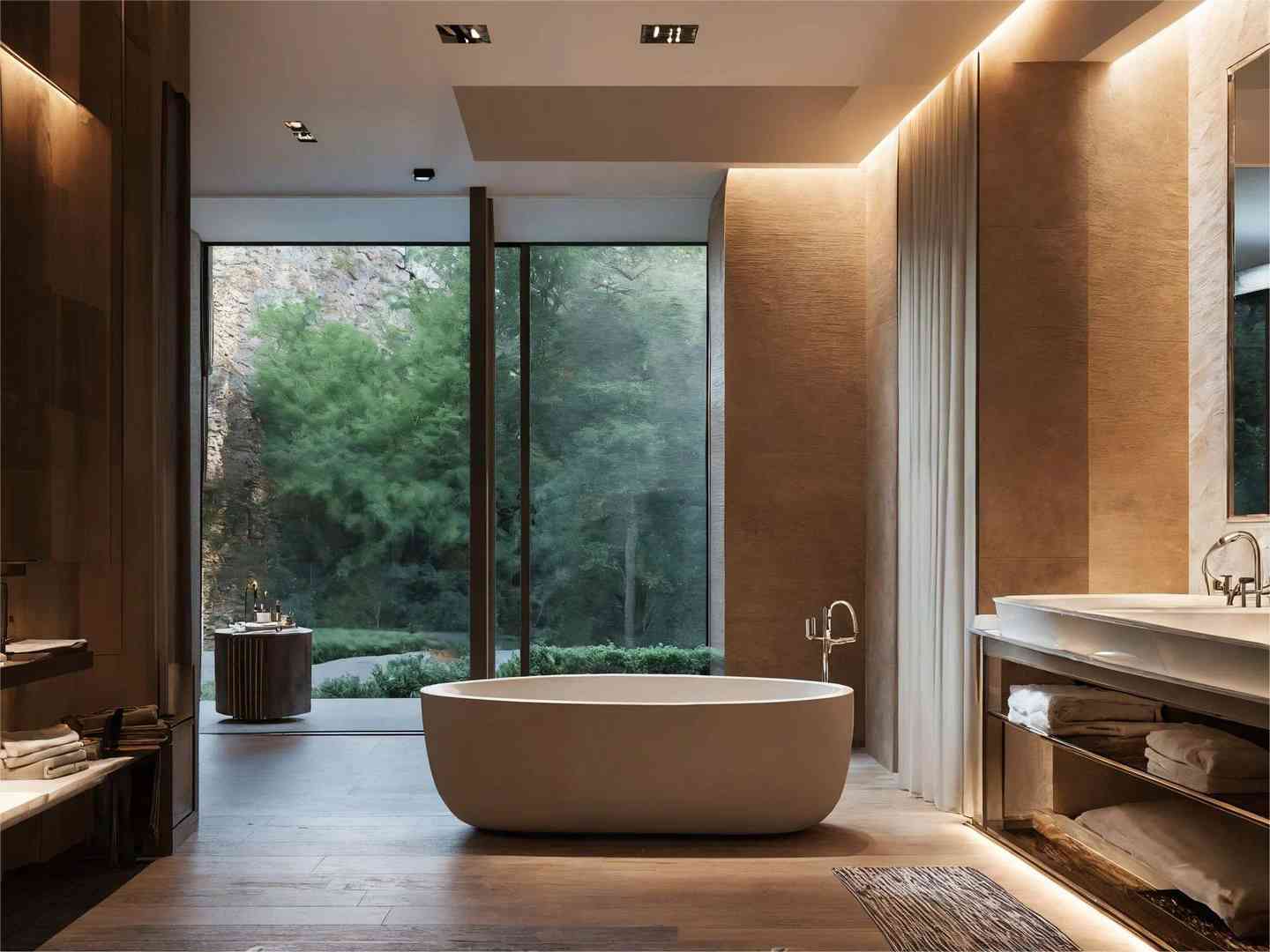
5) What is the best bathtub that won't crack?
When it comes to selecting a bathtub that guarantees longevity and resilience against cracking, several materials stand out for their durability and robustness.
Cast Iron Bathtubs:
Renowned for their exceptional durability, cast iron bathtubs are constructed by pouring molten iron into a mold, resulting in a sturdy and crack-resistant structure.
Despite their weight, cast iron tubs offer unparalleled strength and can withstand heavy use without succumbing to cracks.
Enamel-Coated Steel Bathtubs:
Featuring a steel core coated with enamel, these bathtubs combine durability with lightweight construction.
Resistant to cracking, enamel-coated steel tubs offer excellent longevity and are a practical choice for those seeking a low-maintenance option.
Stone Resin Bathtubs:
Crafted from a blend of crushed stone and resin, stone resin bathtubs boast superior durability and resistance to cracking and chipping.
With their modern aesthetics and robust construction, these tubs offer a reliable solution for long-term use.
Fiberglass Reinforced Acrylic Bathtubs:
Combining the lightweight properties of acrylic with the strength of fiberglass reinforcement, these bathtubs offer a durable and crack-resistant option.
Fiberglass reinforcement enhances the structural integrity of acrylic tubs, ensuring longevity and peace of mind for homeowners.
Solid Surface Tubs:
Constructed from non-porous materials such as Corian, solid surface bathtubs offer exceptional resistance to cracking, staining, and chipping.
With their seamless design and durability, solid surface tubs are an ideal choice for those prioritizing longevity and easy maintenance.
Composite Bathtubs:
Utilizing composite materials such as synthetic marble or artificial granite, these bathtubs offer a durable and crack-resistant solution.
Blending natural stone particles with resins or polymers, composite bathtubs provide the durability needed to withstand daily use without succumbing to cracks.
Origins of Doubt:
Consumers may be apprehensive about selecting a bathtub that won't crack due to concerns regarding material quality, durability, and long-term performance.
Answer:
By considering the durability, construction, and material properties of various bathtub options, individuals can confidently choose a bathtub that offers unparalleled resistance to cracking, ensuring years of enjoyment and relaxation without worry.
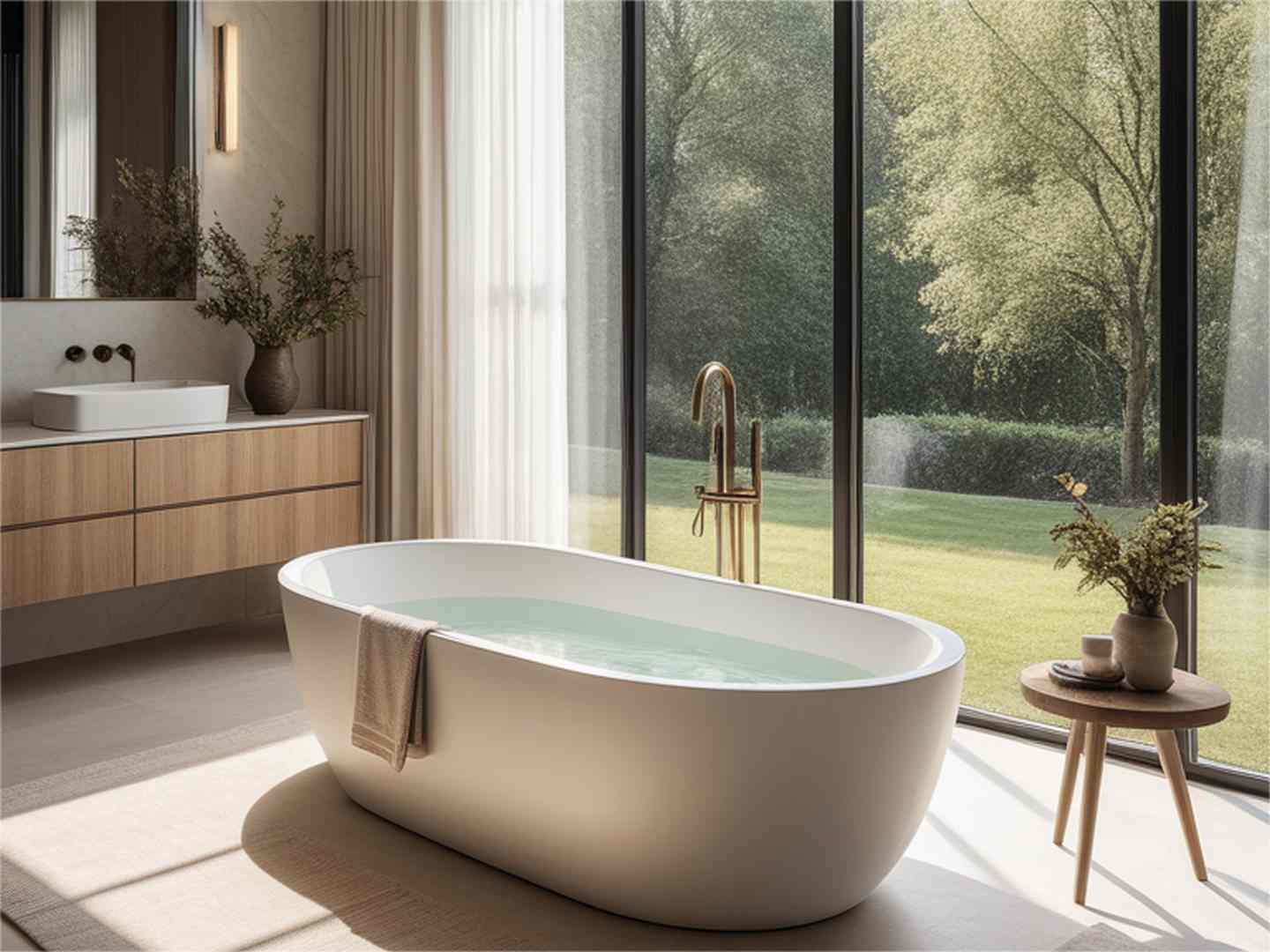
Conclusion
This article has provided valuable insights into selecting the best quality freestanding bathtub.
By exploring five essential factors including material, comfort, durability, comparison between acrylic and porcelain, and resistance to cracking, readers have gained comprehensive knowledge to make informed decisions.
Among these, acrylic and cast iron bathtubs emerged as popular choices due to their durability and affordability, while stone resin and solid surface tubs offer unique aesthetics and exceptional longevity.
Fiberglass reinforced acrylic tubs strike a balance between durability and lightweight design. Although enamel-coated steel tubs are less common, they offer excellent durability.
Ultimately, individual preferences and requirements dictate the most suitable option, ensuring a luxurious bathing experience tailored to each user's needs.
Welcome to know more detailed information about products in Cpingao:
